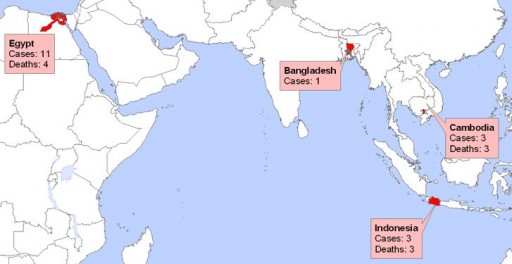H5N1 influenza virus research to continue, says WHO
February 20, 2012
Despite biosafety and biosecurity concerns, research on the naturally occurring H5N1 influenza virus “must continue in order to protect public health”: that was the consensus of global public health and influenza experts at a World Health Organization meeting on February 17.
However, for the new laboratory-modified H5N1 influenza virus (which could potentially lead to a pandemic, with millions of deaths), the scientists agreed to extend a temporary moratorium on research to “increase public awareness and understanding of this research through communications and the review of biosafety and biosecurity aspects.”
The New York Times reported Friday that “the group consensus was that it was much more important to get this information to scientists in an easy way to allow them to work on the problem for the good of public health,” Dr. Fauci said. “It was not unanimous, but a very strong consensus.”
But the United States was not part of that consensus, Dr. Fauci said. He said he still agreed with the National Science Advisory Board for Biosecurity, which recommended in December that the research be published only in a redacted form, for safety reasons.
Research on the viruses was voluntarily suspended by the researchers last month because of the uproar it provoked, the Times said. News of the experiments, which were conducted last year, set off public fears that the virus could accidentally leak out of a laboratory, or be stolen by terrorists, and result in a devastating pandemic.
Also see: Let’s tell everyone how to make a virus that could kill millions!
